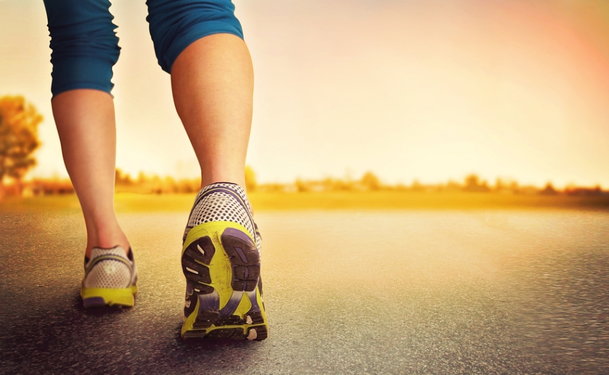If you are a runner or thinking about taking up this activity, you might be wondering if running causes varicose veins. To understand why many people associate running with varicose veins, let’s take a look at what causes them and how running can actually improve your vein health.
What causes varicose veins?
Varicose veins are caused by weak or damaged valves in the veins. Healthy valves act as one-way flaps that keep blood from flowing the wrong way in the vein. This is especially important in the leg, because gravity tends to pull the blood toward the feet—unless your legs are elevated.
When the valves don’t work properly, blood can leak backwards through the valve. This causes blood to pool or collect in the vein. This can lead to swollen veins, also known as varicose veins.
Why is running good for varicose veins?
By the time the blood reaches the veins in your legs, it needs a little help to get all the way back to the heart. This is especially true when you are standing, because gravity pulls the blood toward your feet.
The valves in the veins keep blood from flowing backwards, but the muscles in the legs also have an important role to play. The leg muscles help push the blood out of the legs and back to the heart.
For example, when the calf muscles flex, they squeeze the veins in the lower leg. This pushes the blood toward the heart. Your calf muscles flex when you point your toes away from your knee, or when you come up onto your toes while standing. They also flex while walking and running.
Doing these movements regularly throughout the day can improve the flow of blood in your legs. This is especially important if you sit or stand for long periods. That’s why lack of movement increases your risk of varicose veins—your muscles don’t have a chance to keep the blood flowing.
Running, or other regular exercise, can reduce your risk of developing varicose veins. However, it won’t stop them from forming, especially if you have one or more common risk factors.
Risk factors for developing varicose veins
Many factors increase your risk of developing varicose veins, including:
- Increasing age.
- Having family members with a history of vein problems.
- Changes in hormones that occur during puberty, pregnancy and menopause. Birth control pills may also increase your risk.
- Pregnancy.
- Being overweight or obese.
- Lack of movement, especially sitting or standing for long periods.
Because age is a risk factor for varicose veins, you may see older runners with this vein problem. However, it’s not the running that caused their varicose veins. It’s just that as you get older, you are more likely to develop varicose veins.
Are swollen veins always varicose veins?
Many runners notice that the veins in their legs become more prominent as they run, especially in hot weather. Veins close to the surface of the skin throughout the body swell during exercise. This happens as a result of increased blood flow to the skin, which rids the body of excess heat.
This does not mean that all swollen veins are varicose veins. Varicose veins appear swollen and twisted, but there are other symptoms in the legs that occur, such as:
- Aching pain that worsens after standing or sitting for a long time
- Heaviness, cramping or throbbing
- Swelling, especially in the feet and ankles
- Itchy or irritated rash
- Darkening of the skin
- Restless legs
These symptoms can also be caused by other conditions. If you experience any of these symptoms, talk to your doctor or a vein specialist to find out what is causing these symptoms and your treatment options.
Vein conditions can keep you from hitting the track, trail or road. Wearing compression stockings may reduce the symptoms. There are also several minimally-invasive treatments available to eliminate your varicose veins. These can help your legs look and feel better—and keep you running.
Updated Oct. 13, 2017


